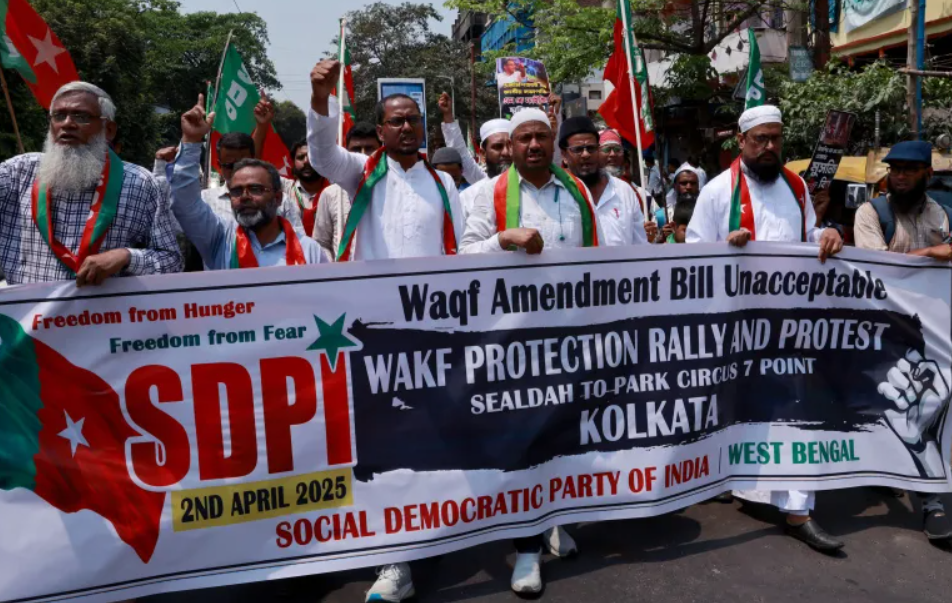Indian authorities have deployed troops to quell deadly protests in the eastern state of West Bengal following the passing of a controversial bill that critics argue undermines the rights of Muslims to manage religious endowments (waqf), worth over $14 billion.
The protests erupted over the federal Waqf Amendment Bill in West Bengal’s Muslim-majority Murshidabad district, escalating on Friday and Saturday, leading to three deaths and the arrest of over 150 people.
The Calcutta High Court intervened and ordered the “immediate” deployment of the Border Security Force (BSF) to the area to assist local police. BSF South Bengal Frontier Inspector General, Karni Singh, stated that forces were sent to support local police, not for independent operations.
The bill amends the Waqf Act of 1995, which governs waqf or Muslim properties that are donated for religious or charitable purposes. Waqf refers to movable or immovable property permanently donated for religious purposes. The new amendments have raised concerns among Muslims, particularly over the inclusion of non-Muslims in the management of waqf properties. Critics argue that this is an effort by the ruling Hindu nationalist Bharatiya Janata Party (BJP) to discriminate against Muslims, as other religious groups are still allowed to manage their own faith-based institutions.
Prime Minister Narendra Modi’s BJP claims that the amendments are intended to bring greater transparency and tackle corruption in the management of waqf properties. However, Muslims fear that the changes could expose waqf properties—such as mosques, shops, shrines, graveyards, and extensive land—to confiscation, dispute, and demolition.
The opposition, particularly the Congress Party, has condemned the bill, arguing that it targets India’s Muslim minority, which constitutes about 15% of the country’s population, and sets a dangerous precedent for future attacks on other communities.









